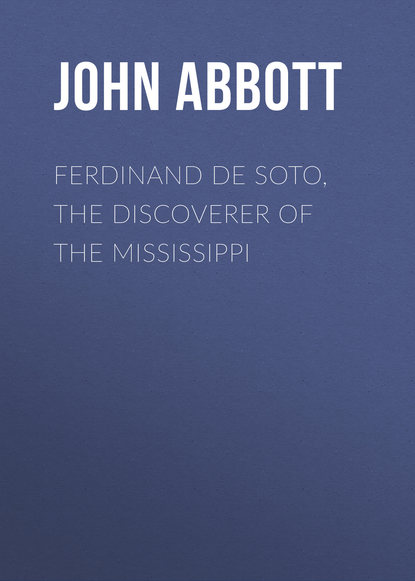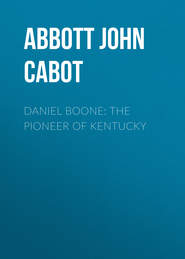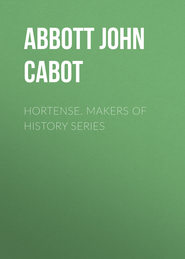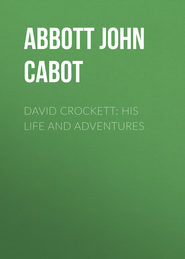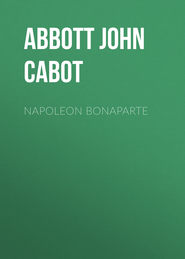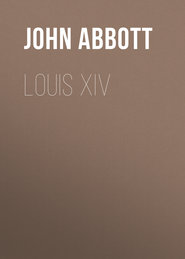По всем вопросам обращайтесь на: info@litportal.ru
(©) 2003-2024.
✖
Ferdinand De Soto, The Discoverer of the Mississippi
Настройки чтения
Размер шрифта
Высота строк
Поля
He then gracefully bowed to the numerous spectators and retired from the field, greeted with the enthusiastic acclaim of all who were present. This achievement gave the youthful victor prominence above any other man in the army. Perez was so humiliated by his defeat, that he threw up his commission and returned to Spain. Thus the New World was rid of one of the vilest of the adventurers who had cursed it.
The region of the peninsula, and the adjoining territory of South America, were at that time quite densely populated. The inhabitants seem to have been a happy people, not fond of war, and yet by no means deficient in bravery. The Spanish colonists were but a handful among them. But the war horse, bloodhounds, steel coats of mail and gunpowder, gave them an immense, almost resistless superiority.
There was at this time, about the year 1521, an Indian chief by the name of Uracca, who reigned over quite a populous nation, occupying one of the northern provinces of the isthmus. He was a man of unusual intelligence and ability. The outrages which the Spaniards were perpetrating roused all his energies of resentment, and he resolved to adopt desperate measures for their extermination. He gathered an army of twenty thousand men. In that warm climate, in accordance with immemorial usage, they went but half clothed. Their weapons were mainly bows, with poisoned arrows; though they had also javelins and clumsy swords made of a hard kind of wood.
The tidings of the approach of this army excited the greatest consternation at Darien. A shower of poisoned arrows from the strong arms of twenty thousand native warriors, driven forward by the energies of despair, even these steel-clad adventurers could not contemplate without dread. The Spaniards had taught the natives cruelty. They had hunted them down with bloodhounds; they had cut off their hands with the sword; they had fed their dogs with their infants; had tortured them at slow fires and cast their children into the flames. They could not expect that the natives could be more merciful than the Spaniards had been.
Don Pedro, instead of waiting the arrival of his foes, decided to assail the army on its march, hoping to take it by surprise and to throw consternation into the advancing ranks. He divided his army of attack into two parties. One division of about one hundred men, he sent in two small vessels along the western coast of the isthmus, to invade the villages of Uracca, hoping thus to compel the Indian chief to draw back his army for the defence of his own territories. This expedition was under the command of General Espinosa.
The main body of the Spanish troops, consisting of about two hundred men, marched along the eastern shore of the isthmus, intending eventually to effect a junction with the naval force in the realms of the foe. The energetic, but infamous Francisco Pizarro, led these troops. A very important part of his command consisted of a band of dragoons, thirty or forty in number, under the leadership of De Soto. His steel-clad warriors were well mounted, with housings which greatly protected their steeds from the arrows of the natives.
The wary Indian chieftain, who developed during the campaign military abilities of a high order, had his scouts out in all directions. They discerned in the distant horizon the approach of the two vessels, and swift runners speedily reported the fact to Uracca. He immediately marched with a force in his judgment sufficiently strong to crush the invaders, notwithstanding their vast superiority in arms.
The Spaniards entered a sheltered bay skirted by a plain, which could be swept by their guns, and where the Indian warriors would have no opportunity to hide in ambush. Uracca allowed the Spaniards to disembark unopposed. He stationed his troops, several thousand in number, in a hilly country, several leagues distant from the place of landing, which was broken with chasms and vast boulders, and covered with tropical forest. Here every Indian could fight behind a rampart, and the Spaniards could only approach in the scattered line of skirmishers. The proud Spaniards advanced in their invading march with as much of war's pageantry as could be assumed. They hoped that nodding plumes and waving banners, and trumpet peals, would strike with consternation the heart of the Indians.
Uracca calmly awaited their approach. His men were so concealed that Espinosa could form no judgment of their numbers or position. Indeed he was scarcely conscious that there was any foe there who would venture to oppose his march. Accustomed as he was to ride rough shod over the naked Indians, he was emboldened by a fatal contempt for the prowess of his foe. Uracca allowed the Spaniards to become entangled in the intricacies of rocks and gullies and gigantic forest trees, when suddenly he opened upon them such a shower of poisoned arrows as the Spaniards had never encountered before. The touch of one of these arrows, breaking the skin, caused immediate and intense agony, and almost certain death. The sinewy arms of the Indians could throw these sharp-pointed weapons with almost the precision and force of a bullet, and with far greater rapidity than the Spaniards could load and fire their muskets.
Espinosa found himself assailed by a foe outnumbering him ten or twenty to one. The air was almost darkened with arrows, and every one was thrown with unerring aim. The rout of the Spaniards was almost instantaneous. Several were killed, many wounded. In a panic, they turned and fled precipitately from the trap in which they had been caught. The natives impetuously pursued, showing no quarter, evidently determined to exterminate the whole band.
It so happened that De Soto, with his dragoons, had left Pizarro's band, and in a military incursion into the country, was approaching the bay where Espinosa had landed his troops. Suddenly the clamor of the conflict burst upon his ear – the shouts of the Indian warriors and the cry of the fugitive Spaniards. His little band put spurs to their horses and hastened to the scene of action. Very great difficulties impeded their progress. The rugged ground, encumbered by rocks and broken by ravines, was almost impassable for horsemen. But the energy of De Soto triumphed over these obstacles, even when the bravest of his companions remonstrated and hesitated to follow him. At length he reached the open country over which the Spaniards were rushing to gain their ships, pursued by the Indians in numbers and strength which seemed to render the destruction of the Spaniards certain.
The natives stood in great dread of the horses. When they saw the dragoons, glittering in their steel armor, come clattering down upon the plain, their pursuit was instantly checked. Espinosa, thus unexpectedly reinforced, rallied his panic-stricken troops, and in good order continued the retreat to the ships. De Soto with his cavalry occupied the post of danger as rear-guard. The Indians cautiously followed, watching for every opportunity which the inequalities of the ground might offer, to assail the invaders with showers of arrows. Occasionally De Soto would halt and turn his horses' heads towards the Indians. Apprehensive of a charge, they would then fall back. The retreat was thus conducted safely, but slowly.
The Spaniards had advanced many leagues from the shores of the Pacific. They were now almost perishing from hunger and fatigue. Indian bands were coming from all directions to reinforce the native troops. The sun was going down and night was approaching. All hearts were oppressed with the greatest anxiety. Just then Pizarro, with his two hundred men, made his appearance. He had not been far away, and a courier having informed him of the peril of the Spaniards, he hastened to their relief. Night with its gloom settled down over the plain, and war's hideous clamor was for a few hours hushed. The morning would usher in a renewal of the battle, under circumstances which caused the boldest hearts in the Spanish camp to tremble.
In the night Generals Espinosa and Pizarro held a council of war, and came to the inglorious resolve to steal away under the protection of darkness, leaving Uracca in undisputed possession of the field. This decision excited the indignation of De Soto. He considered it a disgrace to the Spanish arms, and declared that it would only embolden the natives in all their future military operations. His bitter remonstrances were only answered by a sneer from General Espinosa, who assured him that the veteran captains of Spain would not look to his youth and inexperience for guidance and wisdom.
At midnight the Spaniards commenced their retreat as secretly and silently as possible. But they had a foe to deal with who was not easily to be deceived. His scouts were on the alert, and immediate notice was communicated to Uracca of the movements of the Spaniards. The pursuit was conducted with as much vigor as the flight. For eight and forty hours the fugitives were followed so closely, and with such fierce assailment, that large numbers of the rank and file perished. The officers and the dragoons of De Soto, wearing defensive armor, generally escaped unharmed. The remnant at length, weary and famine-stricken, reached their ships and immediately put to sea. With the exception of De Soto's dragoons, they numbered but fifty men. Deeply despondent in view of their disastrous campaign, they sailed several leagues along the western coast of the isthmus towards the south, till they reached a flourishing Indian village called Borrica. Conscious that here they were beyond the immediate reach of Uracca's avenging forces, they ventured to land. They found all the men absent. They were probably in the ranks of the native army.
General Espinosa, who was now chief in command, meanly sacked the defenceless village and captured all the women and children, to be sent to the West Indies and sold as slaves. The generous heart of De Soto was roused by this outrage. He was an imperious man, and was never disposed to be very complaisant to his superiors. Sternly the young captain rebuked Espinosa as a kidnapper, stealing the defenceless; and he demanded that the prisoners should be set at liberty. An angry controversy ensued. De Soto accused Espinosa of cowardice and imbecility, in ordering the troops of Spain to retreat before naked savages. Espinosa, whose domineering spirit could brook no opposition, accused De Soto of mutinous conduct, and threatened to report him to the governor. De Soto angrily turned his heel upon his superior officer and called upon his troops to mount their horses. Riding proudly at their head, he approached the tent of Espinosa and thus addressed him:
"Señor Espinosa, the governor did not place me under your command, and you have no claim to my obedience. I now give you notice, that if you retain these prisoners so cruelly and unjustly captured, you must do so at your own risk. If these Indian warriors choose to make any attempt to recover their wives and their children, I declare to you upon my solemn oath, and by all that I hold most sacred, that they shall meet with no opposition from me. Consider, therefore, whether you have the power to defend yourself and secure your prey, when I and my companions have withdrawn from this spot."
Pizarro does not seem to have taken any active part in this dispute, though he advised the headstrong Espinosa to give up his captives. While these scenes were transpiring, about one hundred of the men of the village returned. Most earnestly they entreated the release of their wives and children. If not peacefully released, it was pretty evident that they would fight desperately for their rescue. It was quite apparent that the Indian runners had gone in all directions to summon others to their aid. The withdrawal of De Soto left Espinosa so weakened that he could hardly hope successfully to repel such forces. Indeed he was so situated that, destitute of provisions and ammunition, he did not dare to undertake a march back through the wilderness to Darien. He therefore very ungraciously consented to surrender his captives.
Governor Don Pedro had established his headquarters at Panama. De Soto, accompanied by a single dragoon, who like himself was an admirable horseman, rode with the utmost possible dispatch to Panama, where he informed the governor of the disasters which had befallen the expedition, and of the precarious condition in which he had left the remnant of the troops. He also made such representation of the military conduct of General Espinosa as to induce the governor to remove him from the command and send General Herman Ponce to take his place. The garrison at Panama was then so weak that only forty men could be spared to go to the relief of the troops at Borrica.
In the mean time the Indian chief Uracca had received full information of the position and condition of the Spanish troops. Very sagaciously he formed his plan to cut off their retreat. Detachments of warriors were placed at every point through which they could escape; they could not venture a league from their ramparts on any foraging expedition, and no food could reach them. They obtained a miserable subsistence from roots and herbs.
At length De Soto returned with a fresh supply of ammunition and the small reinforcement. By the aid of his cavalry he so far broke up the blockade as to obtain food for the famishing troops. Still it was very hazardous to attempt a retreat to Panama. With the reinforcements led by General Ponce, their whole army, infantry and cavalry, amounted to less than one hundred and fifty men. They would be compelled on their retreat to climb mountains, plunge into ragged ravines, thread tropical forests and narrow defiles, where armies of uncounted thousands of natives were ready to dispute their passage.
CHAPTER III
Life at Darien
Reinforcements from Spain. – Aid sent to Borrica. – Line of Defense Chosen by the Natives. – Religion of the Buccaneers. – The Battle and the Rout. – Strategy of Uracca. – Cruelty of Don Pedro. – The Retreat. – Character of Uracca. – Embarrassment of Don Pedro. – Warning of M. Codro. – Expedition of Pizarro. – Mission of M. Codro. – Letter of De Soto to Isabella.
While governor Don Pedro was awaiting with intense anxiety the receipt of intelligence from Borrica, a ship arrived from Spain bringing three or four hundred adventurers, all of whom were eager for any military expedition which would open to them an opportunity for plunder. One hundred and fifty of these were regular soldiers, well taught in the dreadful trade of war. Don Pedro took these fresh troops and one hundred and fifty volunteers; and set out with the utmost expedition for Borrica. His impetuous nature was inspired with zeal to retrieve the disgrace which had befallen the Spanish arms. He took with him several pieces of ordnance, – guns with which the Indians thus far had no acquaintance.
Upon arriving at Borrica he very earnestly harangued his troops, reminding them of the ancient renown of the Spanish soldiers, and stimulating their cupidity by the assurance that the kingdom of Veragua, over which Uracca reigned, was full of gold; and that all that was now requisite for the conquest of the country and the accumulation of princely wealth, was a display of the bravery ever characteristic of Spanish troops.
There was a deep and rapid river, the Arva, rushing down from the mountains, which it was necessary for the Spaniards to cross in their renewed invasion of Veragua. On the northern banks of this stream Uracca stationed his troops, selecting this spot with much skill as his main line of defence. He however posted an advanced guard some miles south of the stream in ground broken by hills, rocks and ravines, through which the Spaniards would be compelled to pass, and where their cavalry could be of very little avail.
By great effort Don Pedro had collected an army of about five hundred men. Rapidly marching, he soon reached the spot of broken ground where the native troops were stationed awaiting their approach.
It seems almost incomprehensible that this band of thieves and murderers, who, without the slightest excuse or provocation, were invading the territory of the peaceful natives, carrying to their homes death and woe, that they might acquire fame for military exploits and return laden with plunder, could have looked to God for his blessing upon their infamous expedition. But so it was. And still more strange to say, they did not apparently engage in these religious services with any consciousness of hypocrisy. The thoughtful mind is bewildered in contemplating such developments of the human heart. Previous to the attack the whole army was drawn up for prayers, which were solemnly offered by the ecclesiastics who always accompanied these expeditions. Then every soldier attended the confessional and received absolution. Thus he felt assured that, should he fall in the battle, he would be immediately translated to the realms of the blest.
Thus inspired by military zeal and religious fanaticism, the Spaniards rushed upon the natives in a very impetuous assault. We are happy to record that the natives stood nobly on the defence. They met their assailants with such a shower of arrows and javelins that the Spaniards were first arrested in their march, then driven back, then utterly routed and put to flight. In that broken ground where the cavalry could not be brought into action, where every native warrior stood behind a tree or a rock, and where the natives did not commence the action till the Spaniards were within half bow shot of them, arrows and javelins were even more potent weapons of war than the clumsy muskets then in use.
Upon the open field the arrows of the natives were quite impotent. A bullet could strike the heart at twice or three times the distance at which an arrow could be thrown. The Spaniards, hotly pursued, retreated from this broken ground several miles back into the open plain. Many were slain. Here the rout was arrested by the cavalry and the discharges from the field-pieces, which broke the Indian ranks.
The natives, however, boldly held their ground, and the Spaniards, disheartened and mortified by their discomfiture, encamped upon the plain. It was very evident that God had not listened to their prayers.
For several days they remained in a state of uncertainty. For five hundred Spaniards to retreat before eight hundred natives, would inflict a stigma upon their army which could never be effaced. They dared not again attack the natives who were flushed with victory in their stronghold. They were well aware that the band of warriors before them was but the advanced guard of the great army of Uracca. These eight hundred natives were led by one of Uracca's brothers. Even should these Indians be attacked and repulsed, they had only to retreat a few miles, cross the river Arva in their canoes, and on the northern banks join the formidable army of twenty thousand men under their redoubtable chief, who had already displayed military abilities which compelled the Spaniards to regard him with dread.
Affairs were in this position when Uracca adopted a stratagem which completely deceived the Spaniards and inflicted upon them very serious loss. He caused several of his warriors to be taken captive. When closely questioned by Don Pedro where gold was to be found, and threatened with torture if they refused the information, they with great apparent reluctance directed their captors to a spot, at the distance of but a few leagues, where the precious metal could be obtained in great abundance. These unlettered savages executed their artifice with skill which would have done honor even to European diplomatists.
Don Pedro immediately selected a company of forty of his most reliable men and sent them to the designated spot. Here they were surrounded by Indian warriors in ambush, and the whole party, with the exception of three, put to death. The three who escaped succeeded in reaching the Spanish camp with tidings of the disaster. Don Pedro in his rage ordered his captives to be torn to pieces, by the bloodhounds. They were thrown naked to the dogs. The Spaniards looked on complacently, as the merciless beasts, with bloody fangs, tore them limb from limb, devouring their quivering flesh. The natives bore this awful punishment with fortitude and heroism, which elicited the admiration of their foes. With their last breath they exulted that they were permitted to die in defence of their country.
The expedition of Don Pedro had thus far proved an utter failure. He had already lost one-fourth of his army through the prowess of the natives. The prospect before him was dark in the extreme. His troops were thoroughly discouraged, and the difficulties still to be encountered seemed absolutely insurmountable. Humiliated as never before, the proud Don Pedro was compelled to order a retreat. He returned to Panama, where, as we have mentioned, he had removed his seat of government from Darien. Panama was north of Darien, or rather west, as the isthmus there runs east and west. Its seaport was on the Pacific, not the Atlantic coast.
Uracca, having thus rescued his country from the invaders, did not pursue the retreating Spaniards. He probably in this course acted wisely. Could Don Pedro have drawn his enemies into the open field, he could undoubtedly have cut down nearly their whole army with grape shot, musketry, and charges by his strongly mounted steel-clad cavaliers. A panic had however pervaded the Spanish camp. They were in constant apprehension of pursuit. Even when they had reached Panama, they were day after day in intense apprehension of the approach of their outnumbering foes, by whose valor they had already been discomfited, and so greatly disgraced.
"When the Spaniards looked out towards the mountains and the plains," writes the Spanish historian Herrera, "the boughs of trees and the very grass, which grew high in the savannas, appeared to their excited imagination to be armed with Indians. And when they turned their eyes towards the sea, they fancied that it was covered with canoes of their exasperated foemen."
Uracca must have been in all respects an extraordinary man. We have the record of his deeds only from the pen of his enemies. And yet according to their testimony, he, a pagan, manifested far more of the spirit of Christ than did his Christian opponents. In the war which he was then waging, there can be no question whatever that the wrong was inexcusably and outrageously on the side of Don Pedro. We cannot learn that Uracca engaged in any aggressive movements against the Spaniards whatever. He remained content with expelling the merciless intruders from his country. Even the fiendlike barbarism of the Spaniards could not provoke him to retaliatory cruelty. The brutal soldiery of Spain paid no respect whatever to the wives and daughters of the natives, even to those of the highest chieftains.
On one occasion a Spanish lady, Donna Clara Albitez, fell into the hands of Uracca. He treated her with as much delicacy and tenderness as if she had been his own daughter or mother, and availed himself of the first opportunity of restoring her to her friends.
Though De Soto was one of the bravest of his cavaliers, and was so skilful as an officer that his services were almost indispensable to Don Pedro, yet the governor was anxious to get rid of him. It is probable that he felt somewhat condemned by the undeniable virtues of De Soto; for the most of men can feel the power of high moral principle as witnessed in others. De Soto, intensely proud, was not at all disposed to play the sycophant before his patron. He had already exasperated him by his refusal to execute orders which he deemed dishonorable. And worst of all, by winning the love of Isabella, he had thwarted one of the most ambitious of Don Pedro's plans; he having contemplated her alliance with one of the most illustrious families of the Spanish nobility.
Don Pedro did not dare to send De Soto to the scaffold or to order him to be shot. He had already braved public opinion by the outrageous execution of Vasco Nuñez, without a shadow of law or justice, and had drawn down upon himself an avalanche of condemnation from the highest dignitaries of both church and state. He was trembling through fear that the Spanish government might call him to account for this tyrannic act. Thus situated, it was highly impolitic to send De Soto, who was greatly revered and admired by the army, to the block. He therefore still sought, though with somewhat waning zeal, to secure the death of De Soto on the field of battle. De Soto could not fail to perceive that Don Pedro was not his friend. Still, being a magnanimous man himself, he could not suspect the governor of being guilty of such treachery as to be plotting his death.
When the little army of Spaniards was beleaguered at Borrica, and De Soto with his cavalry was scouring the adjacent country on foraging expeditions, he chanced to rescue from captivity M. Codro, an Italian philosopher, who had accompanied the Spaniards to Darien. In the pursuit of science, he had joined the forty men who, under the command of Herman Ponce, had been sent as a reinforcement to Borrica. While at some distance from the camp on a botanical excursion, he was taken captive by the natives, and would have been put to death but for the timely rescue by De Soto.
M. Codro was an astrologer. In that superstitious age he was supposed by others, and probably himself supposed, that by certain occult arts he was able to predict future events. Six months after the return of the Spaniards from their disastrous expedition against Uracca, this singular man sought an interview with De Soto, and said to him:
"A good action deserves better reward than verbal acknowledgment. While it was not in my power to make any suitable recompense to you for saving my life, I did not attempt to offer you any. But the time has now come when I can give you some substantial evidence of my gratitude. I can now inform you that your life is now in no less danger than mine was when you rescued me from the Indians."
De Soto replied: "My good friend, though I do not profess to be a thorough believer in your prophetic art, I am no less thankful for your kind intentions. And in this case, I am free to confess that your information, from whatever source derived, is confirmed in a measure by my own observations."
"Ferdinand De Soto," said the astrologer with great deliberation and solemnity of manner, "I think I can read the page of your destiny, even without such light as the stars can shed upon it. Be assured that the warning I give you does not come from an unearthly source. But if any supernatural confirmation of my words were needed, even on that score you might be satisfied. While comparing your horoscope with that of my departed friend Vasco Nuñez, I have observed some resemblances in your lives and fortunes, which you, with all your incredulity, must allow to be remarkable. Nuñez and you were both born in the same town; were both members of noble but impoverished families; both sought to ally yourselves with the family of Don Pedro, and both thus incurred his deadly resentment."
"These coincidences are certainly remarkable," replied De Soto; "but what other similarities do you find in the destinies of Nuñez and myself?"
"You are a brave man," replied M. Codro, "and you are too skeptical to be much disturbed by the prognostications of evil. I may therefore venture to tell you that according to my calculations, you will be in one important event of your life more happy than Vasco Nuñez. It seems to be indicated by the superior intelligences, that your death will not be in the ordinary course of nature; but I find likewise that the term of your life will be equal to that which Nuñez attained. When I consider your present circumstances, this appears to me to be the most improbable part of the prediction."
Nuñez was forty-two years old at the time of his death. This gave De Soto the promise of nearly twenty years more of life. Reverently he replied, "I am in the hands of God. I rely with humble confidence on his protection."





